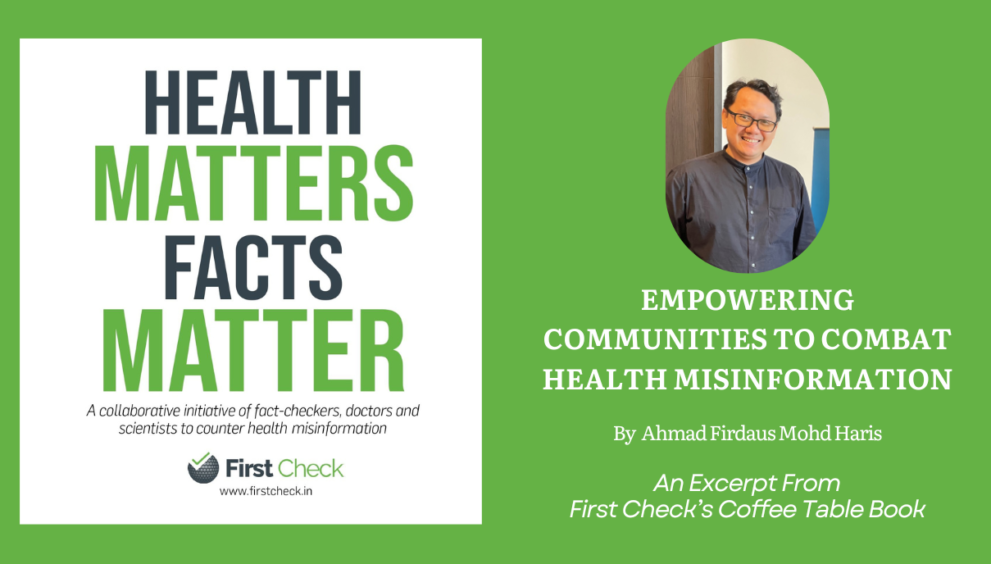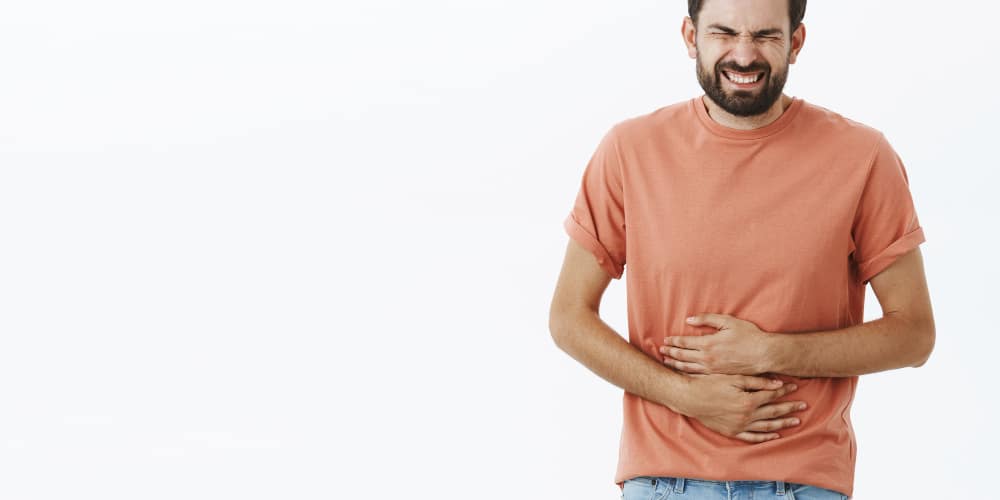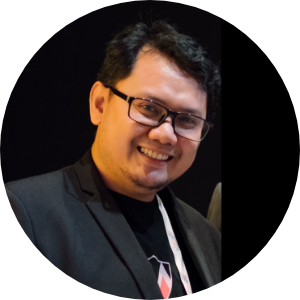Latest
Empowering Communities to Combat Health Misinformation – An Excerpt From First Check’s Coffee Table Book
- admin / 2 years

- 0
- 3 min read

Simply restricting the dissemination of information may not be adequate; alternative strategies are needed to combat misinformation at its root.
“Health misinformation often intertwines with cultural and religious perspectives, posing a unique challenge for fact-checkers.”
In our region, one of the major health misinformation issues revolves around the rising prevalence of non-communicable diseases (NCDs) attributed to lifestyle choices and the aging population. This has given rise to a proliferation of health products promising instant cure, often without any scientific backing. The misleading claims associated with these products pose a significant threat to public health as individuals may unknowingly expose themselves to potential harm.
A notable challenge in addressing this issue is the ineffectiveness of traditional censorship approaches. Simply restricting the dissemination of information may not be adequate; alternative strategies are needed to combat misinformation at its root. Additionally, the fast-paced nature of information sharing in the digital age makes it difficult to keep up with the constant influx of misleading health claims.
Disseminating evidence-based health information across multiple levels of the community presents considerable challenges. Tailoring messages to reach diverse demographics, including those with varying literacy levels and cultural backgrounds, is essential. This requires innovative communication strategies that can effectively bridge the gap and ensure that accurate health information is accessible and comprehensible to a wide audience.
An all-inclusive approach involving collaboration between health authorities, community leaders, and media outlets is crucial. Empowering the public with critical thinking skills and promoting the importance of seeking evidence-based information can contribute to building a more resilient and informed community in the face of health-related misinformation.
Collaborative efforts with renowned organisations like the World Health Organization, news agencies, and service providers have played a pivotal role in enhancing my understanding of the complex landscape of misinformation. Through targeted training programmes, I’ve gained valuable insights that have refined my strategies, moving away from a trial-and-error approach to one grounded in evidence-based practices.
This collaborative learning has not only deepened my comprehension of the nuances surrounding health misinformation, but has also equipped me with a more informed and effective toolkit for countering false narratives. The experience of working alongside experts in the field has provided a nuanced perspective that allows for a more precise and impactful response.
However, this journey has also made me acutely aware of the limitations in combating misinformation. Understanding these constraints has been crucial in setting realistic expectations and refining my focus to areas where I can make the most significant impact.
This is an excerpt from First Check’s Coffee Table Book, you can read the full Coffee Table Book here.
Dr Ahmad Firdaus Mohd Haris is a WHO certified Infordemic manager and co-founder of Medical Mythbusters Malaysia and is a member of the First Check team of Experts.










